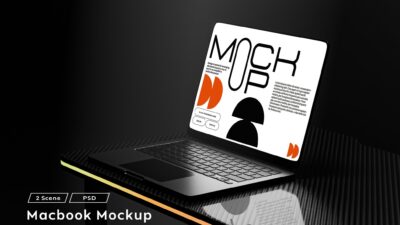Citations are the backbone of academic integrity and intellectual honesty. Whether you’re a student, researcher, or content creator, properly crediting your sources is essential. In a digital age where efficiency is key, citation generator and citation machines have become indispensable tools. These online resources streamline the referencing process, minimize human error, and help users adhere to various citation styles with ease.
This article explores what citation generators and citation machines are, how they function, the types of citation styles supported, and the top tools available today.
What Is a Citation?
A citation is a reference to a source of information. It typically includes details such as the author’s name, title of the work, publication date, and publisher. Citations allow readers to locate the original source and verify the accuracy of information. There are two main parts of a citation:
- In-text citation: Brief mention of the source within the body of the text.
- Bibliography or Works Cited: A comprehensive list of all references used.
Proper citation avoids plagiarism, lends credibility to your work, and allows others to follow your research trail.
The Importance of Citations in Academic and Professional Work
Using citations is more than just a formality. Here’s why they matter:
- Academic Integrity: Properly crediting sources shows respect for others’ work.
- Verification: Citations help readers verify facts and data.
- Credibility: Well-cited work demonstrates thorough research and supports your arguments.
- Avoiding Plagiarism: Giving credit where it’s due protects against intellectual theft.
Failing to cite sources correctly can lead to academic penalties or legal issues in professional publishing.
What Is a Citation Generator?
A citation generator is a digital tool that automatically creates citations based on the input provided by the user. Whether you’re citing a book, journal article, website, or other media, these tools can format the reference in styles such as APA, MLA, Chicago, and Harvard.
How It Works:
- Input Information: You enter the title, author, publication year, and other relevant details.
- Select Style: Choose the required citation style (e.g., APA 7th edition).
- Generate Citation: The tool formats the citation instantly, which you can copy into your document.
Citation generators are typically user-friendly and save time, especially when working with multiple sources.
What Is a Citation Machine?
A citation machine is essentially the same as a citation generator but may include additional features. Some citation machines offer plagiarism checks, grammar suggestions, and source databases. The term “citation machine” became popular due to the rise of platforms like CitationMachine.net, a widely used citation tool.
Key Features of Citation Machines:
- Automated citation formatting
- Multiple citation styles
- Source suggestions
- Plagiarism checker (in premium versions)
- Export options for Word and Google Docs
Citation machines aim to be all-in-one solutions for academic writing.
Popular Citation Styles
Understanding different citation styles is essential when using a citation generator or machine. Each style has its own formatting rules:
1. APA (American Psychological Association)
- Common in psychology, education, and social sciences
- In-text example: (Smith, 2020)
- Reference example: Smith, J. (2020). Understanding Psychology. Penguin Books.
2. MLA (Modern Language Association)
- Widely used in humanities and literature
- In-text example: (Smith 20)
- Works Cited example: Smith, John. Understanding Psychology. Penguin Books, 2020.
3. Chicago Style
- Common in history and fine arts
- Offers two documentation systems: Notes and Bibliography or Author-Date
4. Harvard Style
- Popular in the UK and Australia
- Author-date citation system similar to APA
Most citation machines support all these styles, often with dropdown selections for quick access.
Top Citation Generator and Citation Machine Tools
There are many tools available online, but some stand out due to their accuracy, ease of use, and additional features.
1. CitationMachine.net
One of the most recognized citation machines, it offers a simple interface and supports a wide range of source types. Users can generate citations in APA, MLA, and Chicago styles. Premium options include grammar checking and plagiarism detection.
2. EasyBib
Ideal for students, EasyBib provides citation generation, grammar checks, and research tools. It supports multiple citation formats and integrates with Google Docs.
3. BibMe
BibMe allows users to search for sources by title or URL and automatically fill in citation details. It also includes a plagiarism checker and citation guides.
4. ZoteroBib
Created by the makers of Zotero, ZoteroBib is a free and easy-to-use tool that doesn’t require an account. It’s perfect for quick citations and supports various styles.
5. Mendeley Cite
Integrated with Microsoft Word, Mendeley Cite lets you insert references and generate bibliographies without leaving your document. It’s ideal for researchers and academics using the Mendeley reference manager.
Advantages of Using Citation Generators and Machines
Using citation tools comes with several benefits:
1. Saves Time
Manually formatting citations is time-consuming. Citation generators provide instant formatting.
2. Reduces Errors
These tools follow updated citation guidelines, reducing the chances of formatting errors.
3. Accessibility
Most citation machines are available online and accessible via mobile or desktop.
4. Educational Value
Many tools also include explanations of citation formats, helping users learn proper referencing.
Limitations of Citation Generators
Despite their usefulness, these tools are not perfect:
1. Dependence on User Input
If you enter incorrect information, the citation will also be incorrect.
2. Limited Customization
Some complex sources may not be handled properly or may require manual edits.
3. Style Updates
Citation styles evolve. A generator may not always be updated immediately with the latest guidelines.
To ensure accuracy, always cross-check generated citations with an official style guide.
Best Practices When Using Citation Tools
To get the most out of citation machines and generators, follow these tips:
- Verify the Details: Always double-check the author, title, date, and publisher.
- Use Reliable Sources: Input accurate and credible information.
- Stay Updated: Know the latest version of the citation style you’re using.
- Proofread: Don’t rely solely on the tool—review the final bibliography yourself.
These practices ensure the integrity and quality of your work.
The Future of Citation Tools
As artificial intelligence and machine learning advance, citation generators are expected to become smarter. Future tools may automatically detect sources from your writing, suggest citation styles, and even highlight uncited content. Integration with educational platforms and word processors will further streamline the academic writing process.
Conclusion
Citation generators and citation machines are powerful tools for students, researchers, and professionals alike. They simplify the process of creating accurate, consistent citations, saving time and reducing errors. While they shouldn’t replace an understanding of proper citation practices, they serve as excellent aids for improving the quality and credibility of written work.
In an era where information flows rapidly and content creation is at an all-time high, mastering citation tools ensures that your work stands out—not just for its content, but also for its integrity.
Check out new and latest article to see by clicking here.



